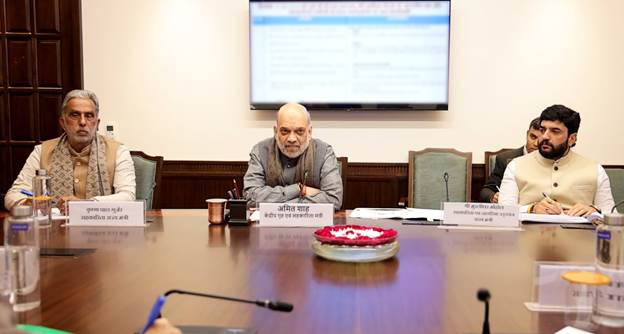A group of civil society organisations, including Oxfam and its partners have emphasised on the need for Bangladesh to ratify key international conventions, including ILO Conventions C189, C190, and C188, to extend legal protections to informal workers.
Bangladesh’s informal sector, employing over 85 per cent of the country’s labour force, remains largely excluded from formal labour protections, leaving millions vulnerable to unsafe working conditions, exploitation, and economic insecurity. To address these systemic challenges, Oxfam and its partners have called for the ratification of key international conventions and the implementation of robust labour reforms.
During a meeting convened by the Labour Reform Commission on Sunday at Shram Bhaban in Dhaka, Oxfam presented a comprehensive set of recommendations to protect informal workers. The meeting brought together representatives from the government, NGOs, development partners, media, and civil society organisations.
Marginalised Workers at Risk
Domestic workers, home-based garment workers, tea plantation workers, and fisherfolk were highlighted as among the most marginalised groups. These workers face significant challenges, including a lack of fair wages, social protections, and basic workplace rights. According to Oxfam’s findings, domestic workers earn an average of Tk 5,311 per month, far below their Tk 10,801 monthly expenses. Alarmingly, 96 per cent report insufficient wages, and 67 per cent experience abuse. Similarly, home-based garment workers earn as little as 50 paisa per piece, with 71 per cent encountering gender-based discrimination.
Tea plantation workers earn Tk170 daily – the lowest globally – leaving 74 per cent below the poverty line, with limited access to healthcare and education. Fisherfolk, particularly women, lack minimum wage protections, with only 4 per cent of women fisherfolk receiving official recognition through fisherfolk cards.
Recommendations for Reform
To address these disparities, Oxfam emphasised the need for Bangladesh to ratify International Labour Organisation (ILO) Conventions C188, C189, and C190, which aim to extend legal protections to informal workers. Other key recommendations included:
- Setting Minimum Wage Standards: Establish fair wage policies to ensure workers can meet their basic needs.
- Expanding Social Safety Nets: Provide access to health insurance and pension schemes to enhance economic security.
- Strengthening Enforcement Mechanisms: Improve workplace safety monitoring and enforce compliance with labour laws.
Voices from the Field
The meeting featured insights from various stakeholders. Syed Sultan Uddin Ahmed, Head of the Labour Reform Commission, stressed the importance of recognising informal workers’ contributions. “Protecting informal workers is not just an economic issue – it is a matter of justice. Recognising their contributions ensures dignity for all,” he said.
Mahfuzul Haque, former Secretary of the Ministry of Labour and Employment, highlighted the gap between policy and practice. “Labour rights are essential for sustainable development. We must bridge the gap to protect our most vulnerable workers,” he stated.
From the workers’ perspective, Salama Akter, a representative from the domestic workers’ community, shared her struggles. “We can’t live a good life as we don’t get even a minimum salary to manage daily expenses and recognition. We are not included in the labour law; as a result, we are out of all forms of formal support,” she said, urging the inclusion of domestic workers in legal protections.
Collaborative Action Needed
Presenting the paper, Mehzabin Ahmed, Head of Gender Justice and Social Inclusion at Oxfam in Bangladesh, underscored the need for systemic change. “The invisible hands driving our economy deserve to be seen, valued, and protected. Labour reforms must address the unique vulnerabilities of marginalised workers,” she stated.
The meeting concluded with a strong call to action for government bodies, employers, and civil society organisations to collaborate in creating a future where all workers are empowered, valued, and protected. Participants agreed that aligning Bangladesh’s labour policies with international standards is essential to ensuring justice and equity for the country’s vast informal workforce.











